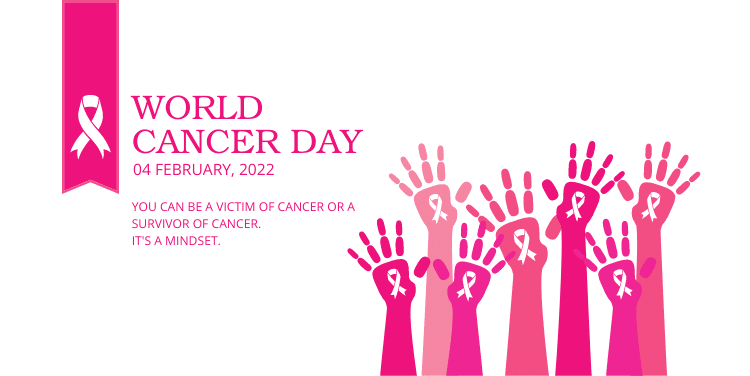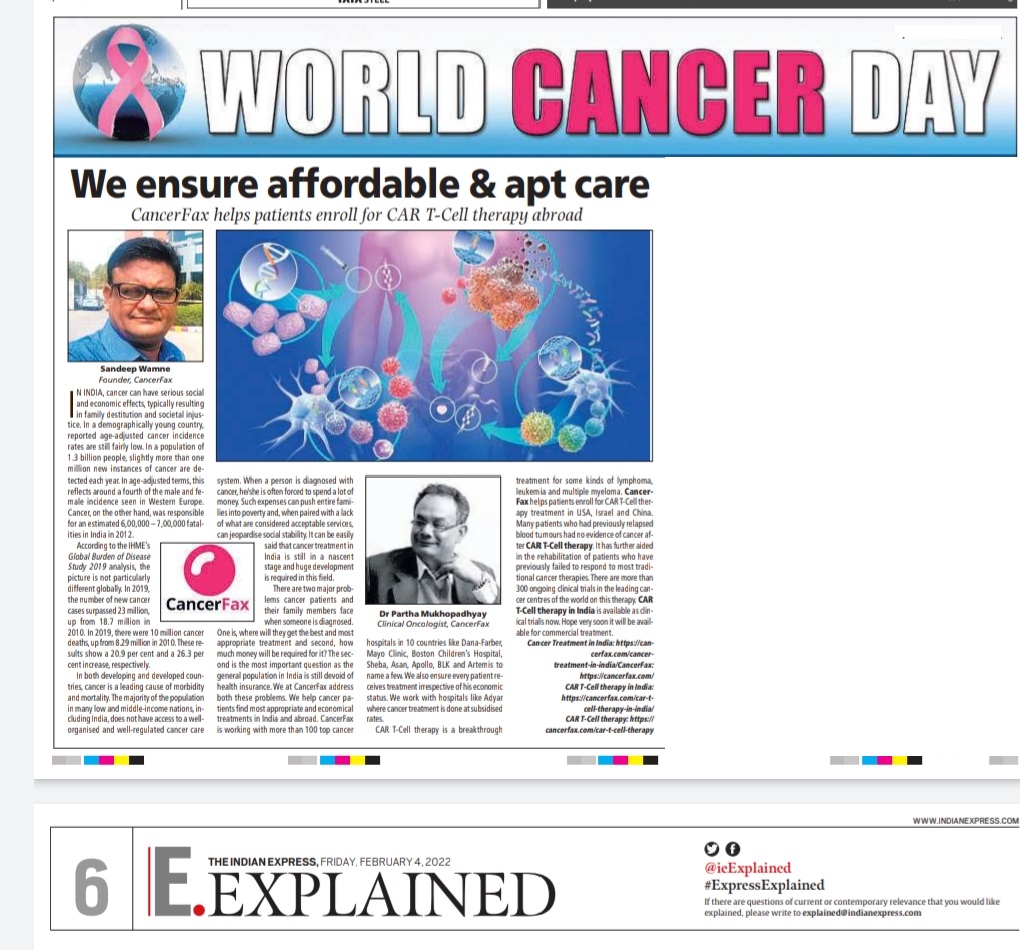World Cancer Day 2022
4th Feb 2022: In India, cancer can have serious social and economic effects, typically resulting in family destitution and societal injustice. In this demographically young country, reported age-adjusted cancer incidence rates are still fairly low. In a population of 1.3 billion people, slightly more than 1 million new instances of cancer are detected each year. In age-adjusted terms, this reflects around a fourth of the male and female incidence seen in Western Europe. Cancer, on the other hand, was responsible for an estimated 600000–700000 fatalities in India in 2012.

According to the IHME study’s Global Burden of Disease Study 2019 analysis, the picture is not particularly different globally. In 2019, the number of new cancer cases surpassed 23 million, up from 18.7 million in 2010. In 2019, there were 10 million cancer deaths, up from 8.29 million in 2010. These results show a 20.9 percent and a 26.3 percent increase, respectively.
In both developing and developed countries, cancer is a leading cause of morbidity and mortality. The majority of the population in many low- and middle-income nations, including India, does not have access to a well-organized and well-regulated cancer care system. When a person is diagnosed with cancer, they are often forced to spend a lot of money on their own health. Such expenses can push entire families into poverty and, when paired with a lack of what are considered acceptable services, can jeopardize social stability. It can be easily said that cancer treatment in India is still in a nascent stage and huge development is required in this field.
There are two major problems cancer patients and their family members face when someone is diagnosed with cancer. One is, where will they get the best and most appropriate treatment, and two, how much money will be required for treatment? Second is the most important question, as the general population in India is still devoid of health insurance. We at CancerFax addresses both these problems. We help cancer patients find most appropriate and economical cancer treatment in India and abroad. CancerFax is working with more than 100 top cancer hospitals in 10 countries like Dana-Farber, Mayo Clinic, Boston Children’s Hospital, Sheba, Asan, Apollo, BLK, Artemis to name a few.

CAR T-Cell therapy is a breakthrough treatment for some kinds of lymphoma, leukemia and multiple myeloma. CancerFax helps patients enroll for CAR T-Cell therapy treatment in the USA, Israel and China. Many patients who had previously relapsed blood tumors had no evidence of cancer after CAR T-Cell therapy. It has also aided in the rehabilitation of patients who have previously failed to respond to most traditional cancer therapies. There are more than 300 ongoing clinical trials in the world’s leading cancer centers on this therapy. CAR T-Cell therapy in India is available as clinical trials now. I hope it will be available for commercial treatment very soon.
Susan Hau is a distinguished researcher in the field of cancer cell therapy, with a particular focus on T cell-based approaches and cancer vaccines. Her work spans several innovative treatment modalities, including CAR T-cell therapy, TIL (Tumor-Infiltrating Lymphocyte) therapy, and NK (Natural Killer) cell therapy.
Hau's expertise lies in cancer cell biology, where she has made significant contributions to understanding the complex interactions between immune cells and tumors.
Her research aims to enhance the efficacy of immunotherapies by manipulating the tumor microenvironment and exploring novel ways to activate and direct immune responses against cancer cells.
Throughout her career, Hau has collaborated with leading professors and researchers in the field of cancer treatment, both in the United States and China.
These international experiences have broadened her perspective and contributed to her innovative approach to cancer therapy development.
Hau's work is particularly focused on addressing the challenges of treating advanced and metastatic cancers. She has been involved in clinical trials evaluating the safety and efficacy of various immunotherapy approaches, including the promising Gamma Delta T cell therapy.
- Comments Closed
- February 4th, 2022



CancerFax is the most trusted online platform dedicated to connecting individuals facing advanced-stage cancer with groundbreaking cell therapies.
Send your medical reports and get a free analysis.
🌟 Join us in the fight against cancer! 🌟
Привет,
CancerFax — это самая надежная онлайн-платформа, призванная предоставить людям, столкнувшимся с раком на поздних стадиях, доступ к революционным клеточным методам лечения.
Отправьте свои медицинские заключения и получите бесплатный анализ.
🌟 Присоединяйтесь к нам в борьбе с раком! 🌟